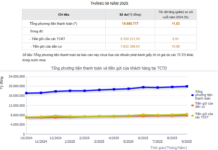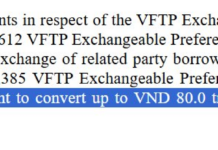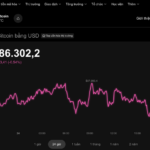
The plummeting price of BTC has put significant pressure on publicly traded companies holding large BTC reserves, with Strategy (USA) leading the pack. Image: Crypto Times |
Strategy (USA), the world’s largest publicly traded Bitcoin holder, has seen its stock price plunge by 50% in just three months.
According to The Block, the combined market capitalization of public companies that borrow and issue shares to acquire leading cryptocurrencies like Bitcoin (BTC) and Ethereum (ETH) has plummeted by approximately $77 billion from its peak of $176 billion in July.
Currently, MicroStrategy’s market cap is lower than the value of the Bitcoin it holds. This has led investors to realize that the “virtuous cycle” model—where rising crypto prices boost the stocks of digital asset treasuries, enabling them to raise more funds to buy more crypto—has officially broken.
Adam Morgan McCarthy, a senior analyst at crypto data firm Kaiko, warns that digital asset treasuries are caught in a death spiral: falling crypto prices trigger stock sell-offs, forcing companies to sell their digital assets to prop up share prices, which further depresses crypto values.
Just a few years ago, software company MicroStrategy inspired a wave of public companies across industries—from filmmaking to e-cigarettes and electric vehicles—to adopt a “Bitcoin treasury” strategy, driving BTC to its all-time high last month. Now, they’re all struggling.
The digital asset treasury craze crumbled this fall as BTC faced a sell-off, contradicting former President Donald Trump’s 2024 promise that the U.S. would become a “Bitcoin superpower.”
Metaplanet, Japan’s largest publicly traded BTC holder, has seen its market cap drop by 80% since its June peak. On November 25, the company borrowed $130 million by collateralizing Bitcoin to repurchase shares.
The Smarter Web Company (UK), the UK’s most active Bitcoin buyer, has also experienced a 44% market cap decline this year. Its market value now stands at £132 million, while the BTC it holds is worth £232 million.
“This outcome was inevitable,” said Jake Ostrovskis, OTC trading lead at Wintermute, referring to the wave of sell-offs by digital asset treasury companies.
Many companies are now reversing course: selling crypto to buy back shares, abandoning the model they’ve long pursued.
FG Nexus (USA) recently sold $41.5 million worth of ETH to repurchase shares. Florida-based life sciences firm ETHZilla sold $40 million in ETH to stabilize its stock price. Sequans Communications (France) sold $100 million in BTC solely to pay off debt. Its market cap now stands at just $87 million, while its remaining BTC is valued at $198 million.
While BTC and ETH still find buyers, public companies holding lesser-known cryptocurrencies face a grimmer fate, warns Kaiko’s Morgan McCarthy. He predicts that 95% of these “digital treasuries” will eventually be worthless.
However, MicroStrategy CEO Michael Saylor remains committed to his BTC accumulation strategy. The company has continued buying BTC as its price fell from $115,000 to $87,000 in recent weeks. BTC is currently recovering, trading above $91,000, but remains far from its October peak of over $126,000.
MicroStrategy risks being delisted from major stock indices, which could further pressure its share price.
“Bitcoin’s volatility is a gift from Satoshi to the faithful,” Saylor commented this week, referencing the pseudonym of Bitcoin’s creator.
Chánh Tài (Source: Financial Times)
– 8:00 PM, November 27, 2025
Bitcoin Plunges to Record Lows, Crypto Market Teeters on the Brink of Danger
The global cryptocurrency market experienced a tumultuous weekend as Bitcoin plummeted to its lowest point in seven months, nearing the critical $80,000 threshold. This level is widely regarded as a “danger zone,” with the potential to trigger a more severe sell-off if breached.
Bitcoin Plummets to $80,000 as Fear Takes Hold
Bitcoin’s steep decline continued on November 21st, plummeting near the $80,000 mark and wiping out nearly $890 billion in investor wealth. Many who attempted to “catch the falling knife” by buying the dip have suffered significant losses. The market remains highly volatile, with substantial risks still present.









































